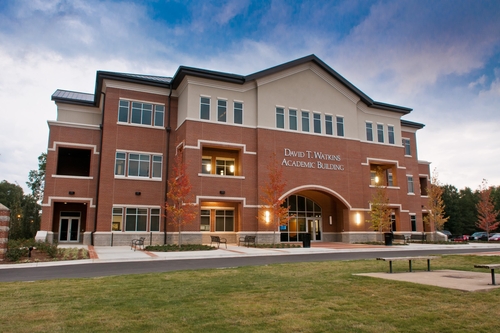5 Things That Educators Should Know About the Philosophy of Education

The word philosophy is derived from two Greek words. The first word, philo, means “love.” The second, sophy, means “wisdom.” Literally, then, philosophy means “love of wisdom” (Power, 1982). Each individual has an attitude toward life, children, politics, learning, and previous personal experiences that informs and shapes their set of beliefs. Although you may not be conscious of it, this set of beliefs, or personal philosophy, informs how you live, work, and interact with others. What you believe is directly reflected in both your teaching and learning processes. This article explores the various philosophical views influence the teaching profession.
It is important to understand how philosophy and education are interrelated. In order to become the most effective teacher you can be, you must understand your own beliefs, while at the same time empathizing with others. In this chapter we will examine the study of philosophy, the major branches of philosophy, and the major philosophical schools of thought in education. You will have a chance to examine how these schools of thought can help you define your personal educational philosophy. Developing your own educational philosophy is a key part of your journey to becoming a teacher. In this article, we will discuss the 5 things that educators should know about the philosophy of education.
What are the major branches of philosophy? The four main branches of philosophy are metaphysics, epistemology, axiology, and logic. Metaphysics considers questions about the physical universe and the nature of ultimate reality. Epistemology examines how people come to learn what they know. Axiology is the study of fundamental principles or values. Logic pursues the organization of the reasoning process. Logic can be divided into two main components: deductive reasoning, which takes general principles and relates them to a specific case; and inductive reasoning, which builds up an argument based on specific examples.
What are the major schools of thought in philosophy? Idealism can be divided into three categories: classical, religious, and modern. Classical idealism, the philosophy of the Greeks Socrates and Plato, searches for an absolute truth. Religious idealism tries to reconcile God and humanity. Modern idealism, stemming from the ideas of Descartes, links perception and existence.
Realism, the school of thought founded by Aristotle, believes that the world of matter is separate from human perceptions. Modern realist thought has led to the “blank slate” notion of human capabilities. Pragmatism believes that we should select the ideas, actions, and consequences with the most desirable outcome, as well as learning from previous experiences to achieve desirable consequences. John Dewey’s Experimentalism brought the scientific method of inductive reasoning to the educational sphere.
Postmodernism and existentialism focus on intricate readings of texts and social and political conventions, examining existing structures for flaws. Essentially, they focus heavily on the present, and on understanding life as we know it. Jacques Derrida’s deconstruction methods of reading texts suggests that universal rationality is not found in objective reality, but in the text. Michel Foucault, another postmodern philosopher, examined the relationship between truth and power.
What are the major philosophies of education? The major philosophies of education can be broken down into three main types: teacher-centered philosophies, student-centered philosophies, and society-centered philosophies. These include Essentialism, Perennialism, Progressivism, Social Reconstructionism, Existentialism, Behaviorism, Constructivism, Conservatism, and Humanism.
Essentialism and Perennialism are the two types of teacher-centered philosophies of education. Essentialism is currently the leading style of public education in the United States. It is the teaching of basic skills that have been proven over time to be needed in society. Perennialism focuses on the teaching of great works.
There are three types of student-centered philosophies of education. Progressivism focuses on developing the student’s moral compass. Humanism is about fostering each student to his or her fullest potential. Constructivism focuses on using education to shape a student’s world view.
There are two types of socially-centered philosophies of education. Reconstructionism is the perspective that education is the means to solve social problems. Behaviorism focuses on cultivating behaviors that are beneficial to society.
What additional ideologies of educational philosophy exist? Other notable ideologies of educational philosophy include Nationalism, American Exceptionalism, Ethno-nationalism, Liberalism, Conservatism, and Marxism. Nationalism is a national spirit, or love of country, that ties the interests of a nation to the symbols that represent it. American Exceptionalism is a form of Nationalism that implies that the United States is a special country that is privileged to have a manifest destiny. Ethno-nationalism is similar to nationalism, but rather than the loyalty lying with one’s nation, it lies with one’s ethnic or racial group. Liberalism is the ideology that people should enjoy the greatest possible individual freedoms and that it should be guaranteed by due process of law. The opposite of liberalism is conservatism. Conservatism is the belief that institutions should function according to their intended original purpose and any concepts that have not been maintained should be restored. Finally, Marxism is an ideological and political movement that focuses on the class system as a form of conflict within the social, political, and educational realms.
How is an educator’s educational philosophy determined? It is important to identify your own philosophy of education in order to understand your own system of values and beliefs so that you are easily able to describe your teaching style to potential employers.
While writing your own personal philosophy of education statement, it is vital to address several key components: How do I think? What is the purpose of education? What is the role of the teacher? How should the teacher teach? What is the role of the student? What should be taught? Additionally, make sure that you be yourself and are clear and concise. Do some research about the school you are applying for and address their missions and goals in your statement. Remember that education is about the students and also remember to focus on your discipline. Think of the great teachers you have had in your life. Remember to get feedback. Additionally, don’t make it long and don’t ramble. Don’t rehash your resume, be a know-it-all, or use strong statements.
Did we miss anything?
Click here to read all of the articles from this series.





